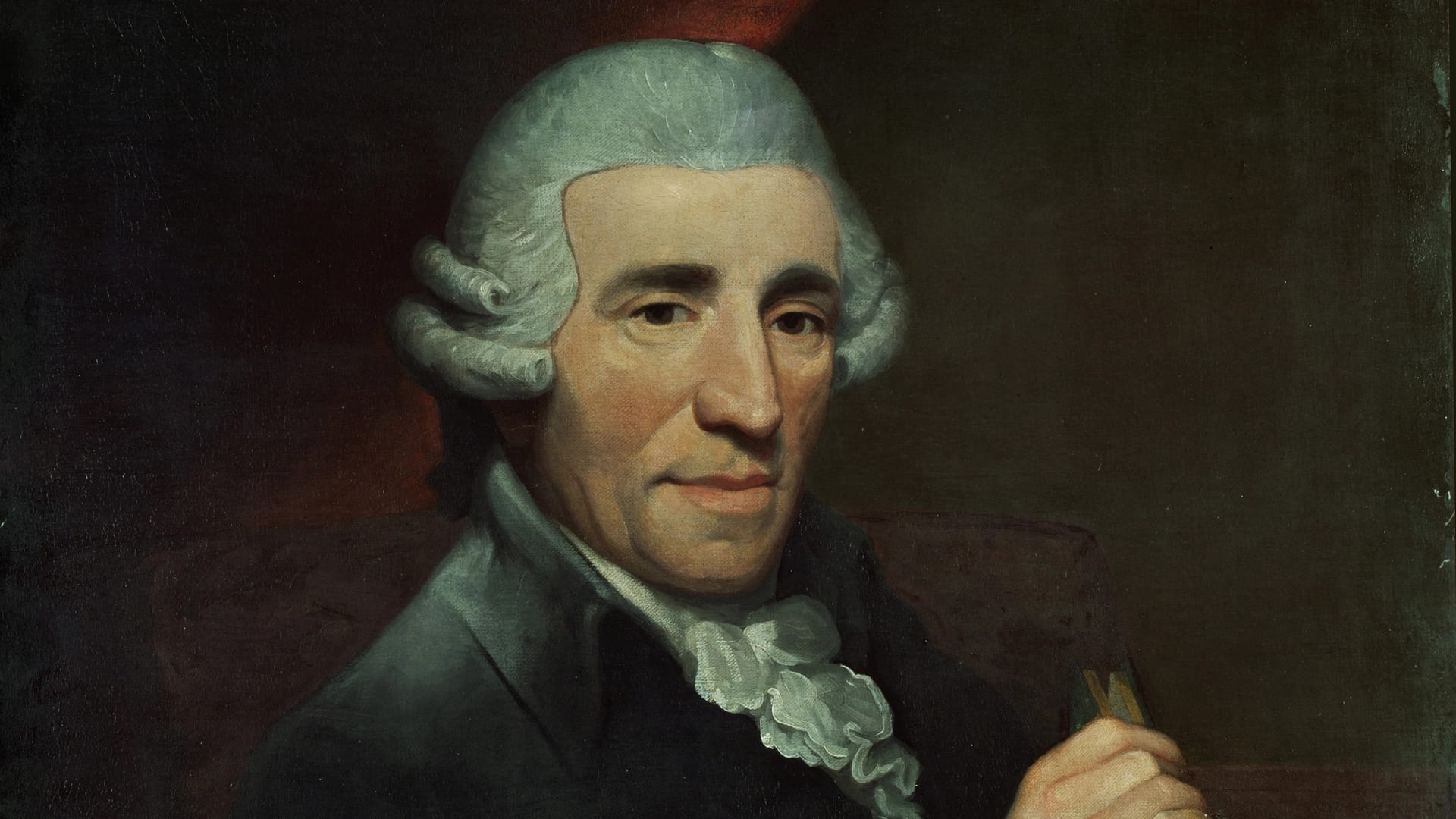
Directing a movie sounds glamorous, megaphone in hand, visions of Oscars dancing in your head. But in reality? It’s more like herding caffeinated cats through a minefield. One wrong move, and Hollywood will toss you into the “has-been” pile faster than you can say “creative differences.” Even the most brilliant directors aren’t immune, as a single disaster at the box office can suddenly mean your next gig is directing car commercials in Ohio. It’s a brutal business, where creative vision meets unforgiving financial realities.
Some of the movies on this list came from fresh-faced newcomers; others were from seasoned legends who made one epic misstep. Whether it was a bloated passion project or a tone-deaf misfire, these films didn’t just flop, they nearly sent their directors into career exile. While a few managed a comeback, many became cautionary tales whispered in studio boardrooms, stark reminders that a director’s chair can be a very hot seat indeed.
It takes only one movie to launch a career and only one movie to destroy careers, and this situation becomes even more dire in the case of directors. A lot of careers are also riding on the shoulders of the director, and they too can become collateral damage in the wake of a flop. Hence, the job of a director is not easy at all, and the following stories of cinematic downfall prove just how precarious the position can be. Buckle up, because Hollywood’s fall from grace can be just as dramatic (and entertaining) as its biggest blockbusters.
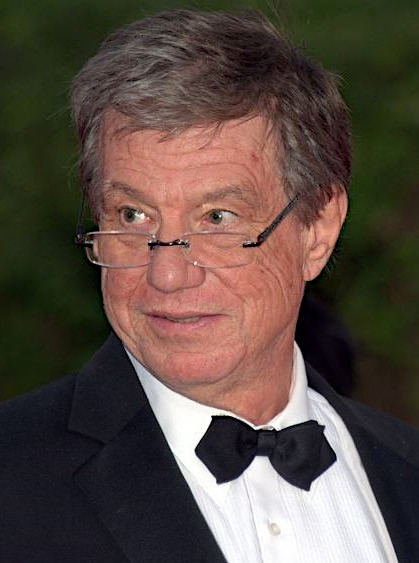
1. **John McTiernan: The ‘Die Hard’ Maestro’s ‘Rollerball’ Debacle** John McTiernan was once synonymous with exhilarating action-thrillers, a true master of the genre. He gave us some breathtaking films that are now considered classics, including the iconic ‘Die Hard’, the creature feature ‘Predator’, and the explosive sequel ‘Die Hard with a Vengeance’. His first adaptation, ‘The Hunt for Red October’, further solidified his reputation for understanding the nuances of a script and translating them effectively to the screen, often even writing the screenplays himself.
While McTiernan had experienced some serious setbacks earlier in his career, notably with ‘The 13th Warrior’ and ‘The Thomas Crown Affair’, it was his 2002 remake of ‘Rollerball’ that became the ultimate lynchpin, sinking his otherwise sterling career. This attempt at revitalizing the 1972 original was a monumental disaster, earning a paltry $26 million on a hefty budget of $70 million. The film was a critical and commercial failure in every sense of the word, leaving audiences bewildered and studios unimpressed.
The impact of ‘Rollerball’ on McTiernan’s career was immediate and severe; he hasn’t directed a feature film since its release. What’s even wilder than the film’s box office performance is the behind-the-scenes drama that spiraled out of control. It became so chaotic that McTiernan ended up wiretapping his own producer and later served time in federal prison for it.
Talk about an epic plot twist that no one saw coming. ‘Rollerball’ wasn’t just a bad movie; it became the catalyst for the director’s downfall, putting a heavy, thudding end to a legendary career. We can only hope that, perhaps, he might yet come back with a bang, maybe in the form of a new ‘Die Hard’ movie – a true long shot, but we can dream.
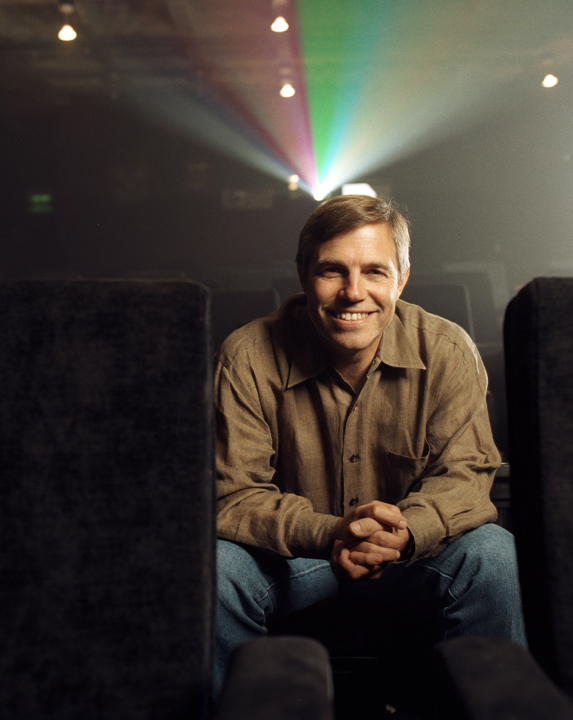
2. **Ron Underwood: The ‘Tremors’ Talent’s Astronomical Fall with ‘The Adventures of Pluto Nash’** It’s truly peculiar what a single, colossal flop can do to a director’s career, especially when you’ve had such a promising trajectory. Ron Underwood was once the toast of Hollywood, celebrated for his successful and thrilling creature feature ‘Tremors’, which quickly became a cult classic. He then further displayed his impressive versatility with the hilarious and widely acclaimed ‘City Slickers’. Both films were huge successes, earning him critical praise and commercial profitability, leading producers to keep his number on speed dial.
With such a stellar track record, Underwood was entrusted with ‘The Adventures Of Pluto Nash’, a massive $100 million dollar project starring the comedy legend Eddie Murphy. On paper, it sounded like a surefire hit, a big-budget sci-fi comedy that could launch a new franchise. Yet, the reality proved to be a catastrophic miscalculation. The movie could only scrape together a measly $7 million at the box office, for the most part playing to embarrassingly empty theaters.
This astronomical failure cost Underwood dearly, bringing a very successful career to an abrupt and painful end. The sheer scale of the financial loss and critical scorn associated with ‘The Adventures of Pluto Nash’ was simply too much to overcome. He effectively went into a void, a cinematic purgatory from which he never truly came back as a major feature film director.

3. **Roberto Benigni: ‘Life is Beautiful’ to ‘Pinocchio’ – A Sudden Career Shift** Imagine the profound, heart-wrenching beauty of ‘Life is Beautiful’ and then try to reconcile that with the bizarre spectacle of ‘Pinocchio’. Roberto Benigni directed both of these movies, yet they couldn’t have been any more different from each other in terms of reception and impact. Benigni had not only been applauded for his magnificent work on ‘Life is Beautiful’ but had also received three Oscars for it, including Best Actor and Best Foreign Language Film, reaching the pinnacle of cinematic achievement.
However, something happened, as it often does to people who taste overwhelming success before they’ve fully pulled their straw. Benigni followed up his triumph with an absolute dud in the form of his 2002 live-action adaptation of ‘Pinocchio’. Boy, could it have been any worse? The film was so universally panned and laughably bad that it seemed almost hilarious in its failure, proving to be a jarring departure from his previous brilliance.
This particular rendition, aimed at children, simply couldn’t capture the magic or whimsy one might expect from a beloved fairy tale. Benigni’s trademark charm and boundless enthusiasm, which had worked so well in ‘Life is Beautiful’, were simply not enough to bring the beloved wooden character to life for audiences and critics, leaving everyone underwhelmed and disappointed.
While the film’s failure effectively derailed his directing career, Benigni hasn’t entirely given up on the entertainment industry, staying active on screen as an actor. However, ‘Pinocchio’ will forever be remembered as the significant bump in the road for a director with so much potential, leaving us longing for more of his unique directorial magic that once captured the world’s heart.

4. **Stephen Norrington: The ‘Blade’ Director’s ‘League of Extraordinary Gentlemen’ Controversy** This is a curious and often-told story of how the world of comics initially gave a director his purpose, only to seemingly take everything away later on. Stephen Norrington’s career began with a bang, launching into the blockbuster stratosphere with ‘Blade’, a Marvel comics adaptation that became a massive success. The Wesley Snipes-starrer quickly became a symbol of cool, jaw-breaking action, showcasing Norrington’s knack for gritty, stylish filmmaking.
But then came the rather unfortunate anti-climax of Norrington’s directorial career. He took on the challenge of adapting Alan Moore’s beloved graphic novel ‘The League of Extraordinary Gentlemen’. While the film didn’t exactly ‘flop’ in the traditional sense, making considerable money at the box office, it certainly didn’t go well with the critics, who largely panned it. Its reception was lukewarm at best, failing to live up to the expectations set by its source material and its director’s earlier work.
The peculiar thing about ‘The League of Extraordinary Gentlemen’ wasn’t just its critical reception; it also brought about some incredibly strong reactions from the people involved. Most famously, Sean Connery, one of its lead stars, announced his retirement from acting following his experience on the film, a testament to the troubled production. Since then, Norrington has faced a significant drought in opportunities, losing out on directing assignments for projects like ‘Ghost Rider’ and ‘Clash of the Titans’.
He hasn’t received any offers to direct a major feature film again, effectively sidelining a director who had shown such early promise in the comic book adaptation space. It’s a stark reminder that even a film that makes money can still damage a director’s reputation and future prospects if the behind-the-scenes drama or critical response is too negative.
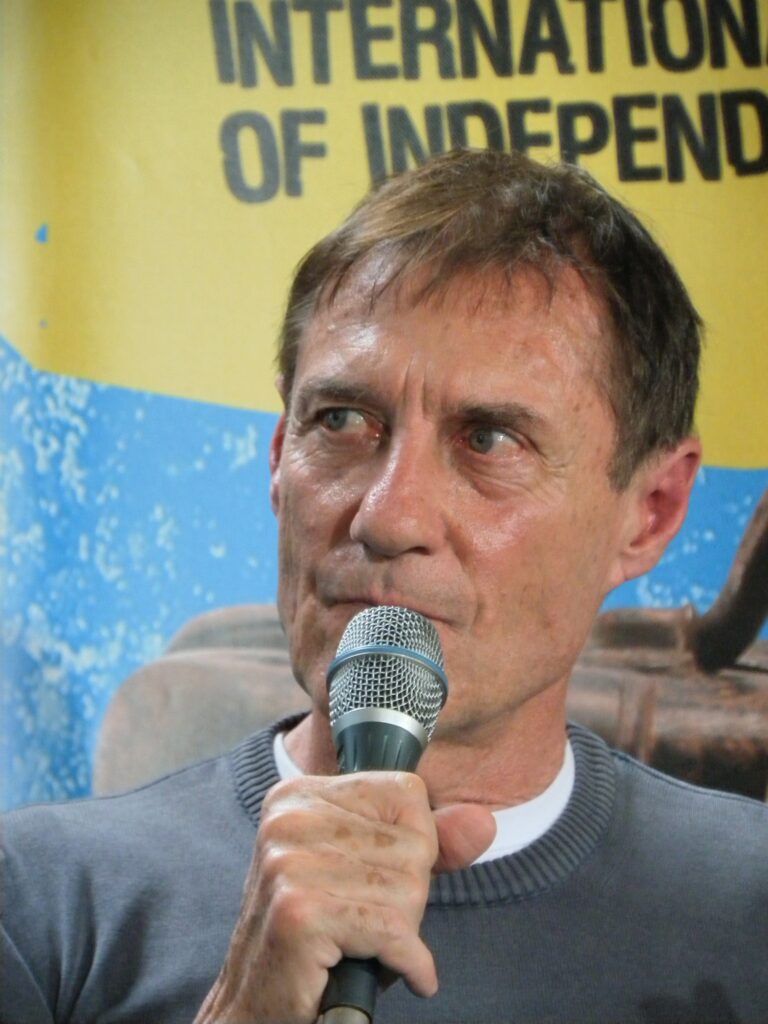
5. **Roland Joffé: From Oscar Nominee to Razzie Winner with ‘The Scarlet Letter’** When your very first film garners seven Oscar nominations, you’re either destined to die a hero or live long enough to become a villain. This dramatic narrative perfectly encapsulates what happened with Roland Joffé. After toiling away in the television landscape in his native Britain, Joffé joined forces with the wunderkind producer David Puttnam for a one-two punch breakthrough that swept both awards season and critics off their feet, setting an incredibly high bar for his career.
His debut, ‘The Killing Fields’ (1984), was a haunting and immensely moving treatise on the ‘cleansing campaign’ atrocities in Cambodia, a film that resonated deeply with audiences and critics alike. This was swiftly followed by the lush yet equally devastating ‘The Mission’ (1986), a powerful story centered around a Jesuit priest siding with South American natives against Portuguese slavers. Both movies were monumental successes, both critically and commercially, showcasing stellar visuals (including career-best work from cinematographer Chris Menges), nuanced and wrenching performances, and Joffé’s outright fantastic handling of direction.
With eyes unanimously glued on his follow-up projects, the 90s brought testing times for Joffé, with a series of somewhat mediocre movies. Films like ‘Shadow Makers’ (1989) and ‘City of Joy’ (1991) were lower-key results that didn’t take the world by storm, yet in retrospect, they were still strong efforts. However, the allure of awards and the big leagues beckoned, leading him to some more questionable choices, including the vile attempt of adapting Super Mario on-screen.
But the true nadir arrived with ‘The Scarlet Letter’ in 1995. This film was an unmitigated disaster, bagging almost all the Razzie awards and firmly cementing its place as a career-damaging flop. The fall from grace was steep and public, a stark contrast to his earlier Oscar-nominated glory.
After this colossal failure, Joffé did manage to get some offers here and there, but they were almost exclusively for direct-to-TV movies and, as the saying goes, probably ended up in the dumps. It was a tragic end for a director who had started with such immense promise, proving that even a heroic beginning can lead to a villainous outcome in the unforgiving world of Hollywood.
After exploring the first wave of directorial careers that crashed and burned after a single box office calamity, it’s clear that Hollywood has a rather short memory for past triumphs when a film’s financial performance tanks. But the tales of woe don’t end there, as we continue our grim journey through Tinseltown’s cinematic graveyard, pulling back the curtain on more directorial dreams that turned into nightmares. This next batch of filmmakers, some legends in their own right, also faced the unforgiving judgment of the box office, proving that even the most established names can stumble and fall hard.

6. **Michael Powell: ‘Peeping Tom’ — A Masterpiece Too Soon**Michael Powell was genuinely a promising director, a true craftsman who honed his skills for years as an assistant before finally getting to helm his own features. He gifted cinema with some absolutely brilliant movies like ’49th Parallel’ and the timeless classic ‘The Red Shoes’, cementing his reputation for visionary filmmaking and artistic integrity.
Yet, in a heartbreaking twist of fate that almost sounds like a movie plot itself, his very best work ultimately ruined his career. Powell dared to try his hand at horror with ‘Peeping Tom’, crafting a thrilling feature that offered something truly different and unsettling for its time. It was a bold, psychological exploration of voyeurism that pushed boundaries and challenged audience sensibilities.
The world, however, was simply not ready for ‘Peeping Tom’. The film received a massive backlash from critics and failed spectacularly at the box office, becoming a commercial pariah. It’s a profound cinematic tragedy when a director’s most innovative and challenging piece becomes the catalyst for their professional downfall. If only people had realized his brilliance then, instead of years later when the film was re-evaluated, it wouldn’t have ruined such a promising career.
Powell’s story is a stark reminder that sometimes, being ahead of your time in Hollywood can be just as detrimental as being behind it. Artistic bravery doesn’t always guarantee immediate rewards, and for him, it meant a premature end to his flourishing career in mainstream cinema, leaving us to wonder what other masterpieces might have been.
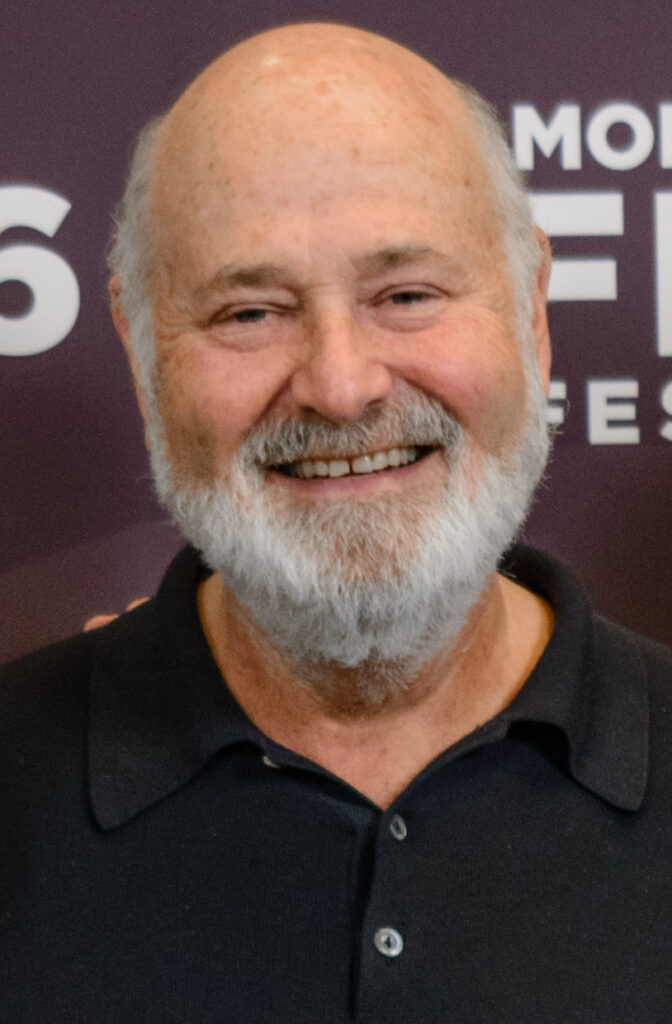
7. **Rob Reiner: The ‘When Harry Met Sally’ Guy’s ‘North’ Problem**For over a decade, Rob Reiner reigned supreme over the movie business, effortlessly crafting brilliant pieces of cinema that became cultural touchstones. His impressive run began with the iconic ‘This Is Spinal Tap’, and he went on to receive worldwide recognition for beloved romantic comedies like ‘When Harry Met Sally’ and the intense legal drama ‘A Few Good Men’, solidifying his place in Hollywood’s elite directors club.
Then came the spectacular downfall: his 1994 production, ‘North’. This film, infamously featuring Bruce Willis in a bunny suit, effectively sent all his carefully built reputation crashing down. The critical reception was merciless, and the box office performance was dismal, proving that even the most celebrated directors aren’t immune to a catastrophic misstep.
The only thing truly mentionable about ‘North’ was its surprisingly good-looking cast, which, unfortunately, couldn’t salvage the bizarre plot or its bewildering tone. The movie raked in a laundry list of Razzie nominations and criticisms, becoming a punchline that lingered far longer than its actual theatrical run.
Since that infamous outing, Reiner has had a rather dismal run at the box office, with the notable exception of his production of ‘The Bucket List’. It’s a sobering thought that one wildly misguided project could so significantly impact the commercial viability of a director who had previously delivered such consistent excellence, leaving a prominent stain on an otherwise stellar career.

8. **John Carpenter: From Cult Classics to the ‘Ghosts of Mars’ Debacle**John Carpenter, the undisputed maestro of spine-chilling horror and gritty sci-fi, didn’t just create films; he defined entire genres with his unique style. He burst onto the scene with the cult classic ‘Dark Star’, and followed that with a string of smash hits, including ‘Assault on Precinct 13’, ‘The Fog’, and ‘Escape from New York’, cementing his legacy as a visionary filmmaker.
However, even legends can hit a bumpy road. Carpenter experienced a string of mediocrity with films like ‘Escape from L.A’, ‘In the Mouth of Madness’, and ‘Vampires’. These hinted at a director perhaps struggling to recapture his earlier spark, yet the worst was still to come, lying in wait like a creature from one of his own movies.
That worst arrived in the form of his 2001 film, ‘Ghosts of Mars’. If you’re looking for a cinematic low point, this one takes the cake. Every single aspect of the movie simply sucked, and it sucked big time, from its convoluted plot to its lackluster performances. It was a critical and commercial failure that seemed to actively erase any goodwill Carpenter had accumulated.
The impact was immediate and long-lasting; ‘Ghosts of Mars’ essentially sent John Carpenter into a semi-retirement from feature films. While he did recently direct an episode of ‘Master of Horrors’, proving that some of his charisma remains, his prolific output of original, genre-defining films came to a grinding halt after this disastrous outing.

9. **Michael Cimino: ‘The Deer Hunter’ Glory and ‘Heaven’s Gate’ Catastrophe**Michael Cimino had carved out a respectable career, but it was ‘The Deer Hunter’ that truly rocketed him into the global spotlight. This powerful Vietnam War epic enjoyed a resounding success, earning critical acclaim and a fantastic run at the box office. It culminated in five Academy Awards, including Best Director and Best Picture, placing Cimino at the very pinnacle of cinematic achievement.
With such immense success, the industry granted Cimino unprecedented creative freedom for his next project. His follow-up, ‘Heaven’s Gate’, was envisioned as a sprawling Western, but instead of building upon his success, it utterly crashed everything Cimino had painstakingly constructed. The film’s production became legendary for all the wrong reasons, with an animosity behind the scenes that mirrored the strife portrayed on screen.
Cimino’s dictatorial style, stubborn perfectionism, and insistence on extreme historical accuracy led to extensive delays and a ballooning budget. Initially projected at $11.6 million, the film’s cost soared to a staggering $44 million – the equivalent of $160 million today – making it one of the most expensive films ever made. He demanded countless takes, and his initial five-hour cut was deemed commercially unviable.
Upon its premiere, ‘Heaven’s Gate’ was met with scathing critical backlash, leading United Artists to pull it from theaters and hastily recut. The financial fallout was catastrophic; the film earned a mere $3.5 million, a paltry sum compared to its astronomical cost. This inglorious failure heavily contributed to United Artists’ bankruptcy later that year, making ‘Heaven’s Gate’ perhaps the most consequential box office flop in film history.
Cimino’s career never fully recovered from this debacle. The love lost between Michael Cimino and the audience, and certainly the studios, never resuscitated, leaving him with a remarkably short filmography despite his early Oscar glory. His story remains a potent cautionary tale in Hollywood lore, a stark reminder of how unchecked hubris and creative freedom can lead to an auteur’s tragic undoing.

10. **Richard Kelly: The ‘Donnie Darko’ Cult King’s ‘Southland Tales’ Stumble**Richard Kelly emerged onto the filmmaking scene with a bang, crafting ‘Donnie Darko’, a film that quickly ascended to cult classic status and remains one of the most talked-about movies of our time. This intricate, mind-bending thriller garnered him a massive fan following, who eagerly awaited his next move, anticipating another stroke of unconventional genius.
After the profound success of ‘Donnie Darko’, Kelly took a significant hiatus from directing. When he finally returned, he signed on for ‘Southland Tales’, a three-hour-long dystopian musical that aimed to satirize American pop culture and corruption. On paper, it held a lot of promise, brimming with the kind of ambitious, sprawling narrative that fans might expect.
However, ‘Southland Tales’ ultimately failed to fulfill any of that promise. Its convoluted plot, excessive runtime, and peculiar tone proved to be too much for audiences and critics alike, resulting in a confusing and largely impenetrable cinematic experience. It was a massive critical and commercial disappointment, alienating many of the fans who had so enthusiastically supported his earlier work.
The stumble with ‘Southland Tales’ had a lasting effect. Since that film, Richard Kelly has only directed one other feature, ‘The Box’, which also unfortunately turned out to be a big dud. He hasn’t helmed a major movie project since, leaving his once-promising directorial career in a state of suspended animation, burdened by the weight of unfulfilled potential.
As we close the curtain on these cautionary tales from Hollywood’s annals, the message is chillingly clear: the director’s chair is a hot seat, and a single box office disaster can turn a career into a relic of the past. These stories underscore the brutal, high-stakes reality of filmmaking, where creative vision must constantly contend with unforgiving financial imperatives. While the industry once celebrated bold risks, the landscape has undeniably shifted, with studios now favoring established intellectual property and engineered blockbusters over groundbreaking originality. The era of the auteur, empowered to take massive swings like ‘Apocalypse Now’ or ‘Heaven’s Gate’, feels increasingly like a vestige of a bygone era. For every director who survives a flop, countless others fade into cinematic obscurity, serving as potent reminders that in Hollywood, even heroes can live long enough to become cautionary tales in the relentless pursuit of the next big hit.


